The changing face of the MBA, in charts

Roula Khalaf, Editor of the FT, selects her favourite stories in this weekly newsletter.
Specialists from the FT’s business education rankings team analysed data from surveys for the 2022 Global MBA edition, revealing the changing profile of students.
Alumni were asked about their reasons for studying for an MBA, what business schools teach best — and worst — and their career choices and changing salaries since graduation.
The data also reveal how the profile of alumni has altered over time, with more from the Asia-Pacific region, more women and a notable fall in those entering finance and banking.
We also look at business schools’ efforts on sustainability and their targets for achieving net zero carbon.
FT Global MBA Ranking 2022 - the top 100
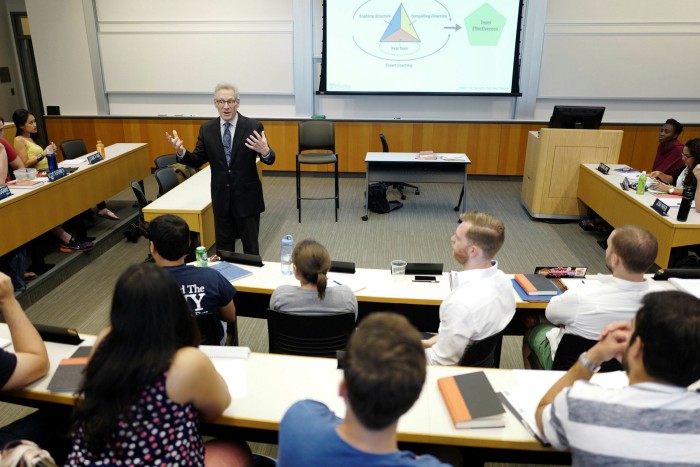
Find out which schools are in our ranking of MBA degrees. Learn how the table was compiled and read the rest of our coverage at www.ft.com/mba.
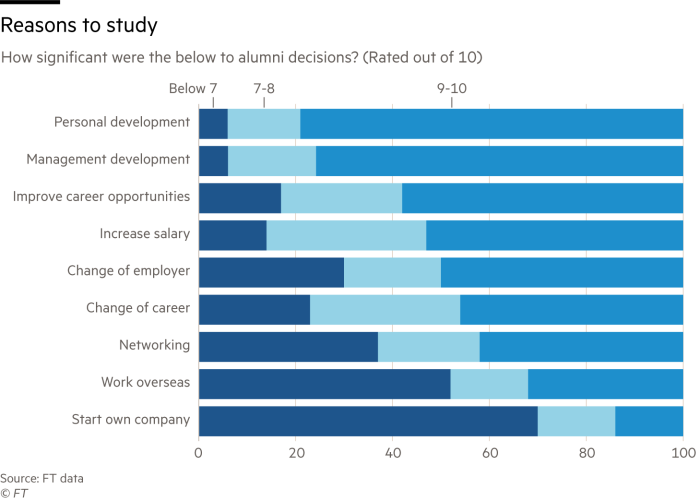
Personal and management development are among the main reasons surveyed alumni gave for doing their MBAs, following the trend from the previous two years. Starting their own companies was less important.
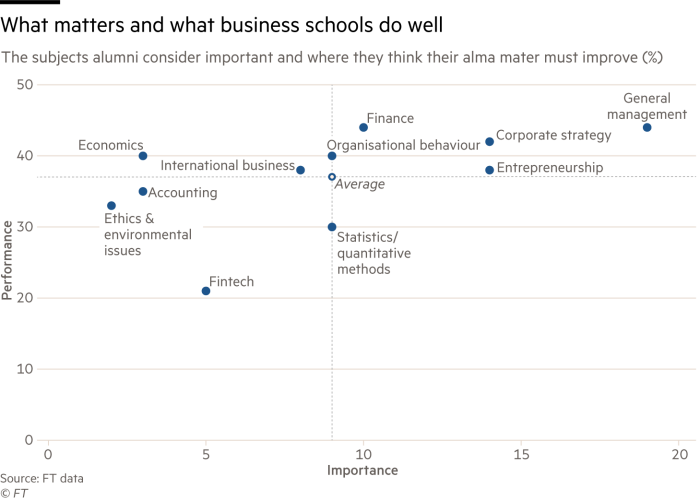
General management, corporate strategy, entrepreneurship, organisational behaviour and finance are among the subjects important to alumni that they believe are taught well. Graduates said the teaching of statistics and quantitative methods needed improvement.
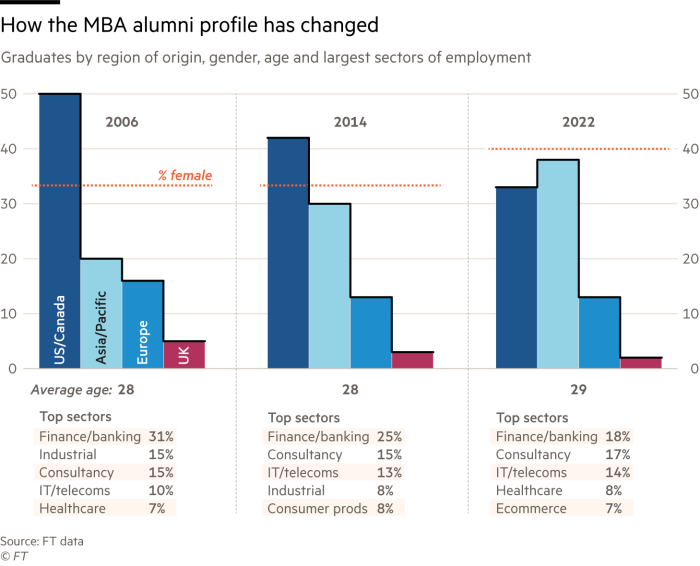
The percentage of alumni from the Asia-Pacific region who studied at schools that participated in the ranking process has overtaken those from North America. The proportion of women is up from 33 per cent to 40 per cent since 2006 and the number going into finance and banking has fallen significantly.
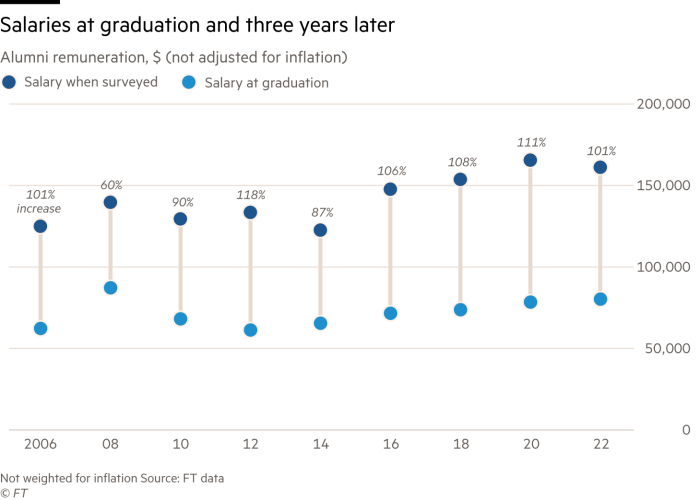
Average alumni salaries have increased by 28 per cent since 2006, both at graduation and three years after completing an MBA. The cumulative inflation rate on the US dollar in that period is 37 per cent. Salaries are down for the first time since 2014 in this year’s ranking.
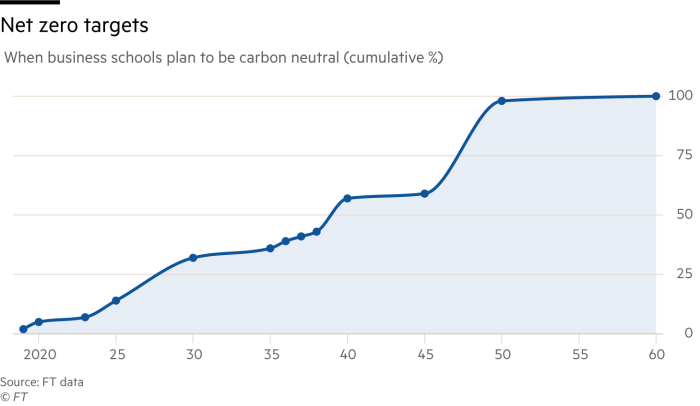
Of the 29 per cent of schools with net zero plans, 5 per cent say they have hit this target and more than half aim to do so within 20 years. More than 70 per cent of all schools in the ranking process either have not carried out an audit in the past three years or did not respond.
Carbon emissions
Most schools have not carried out an audit in the past three years.
29% have completed a carbon emissions audit
21% have completed an audit including Scope 3* emissions
*Includes indirect emissions such as those resulting from travel, waste and investments
Graphics by Chris Campbell
Comments